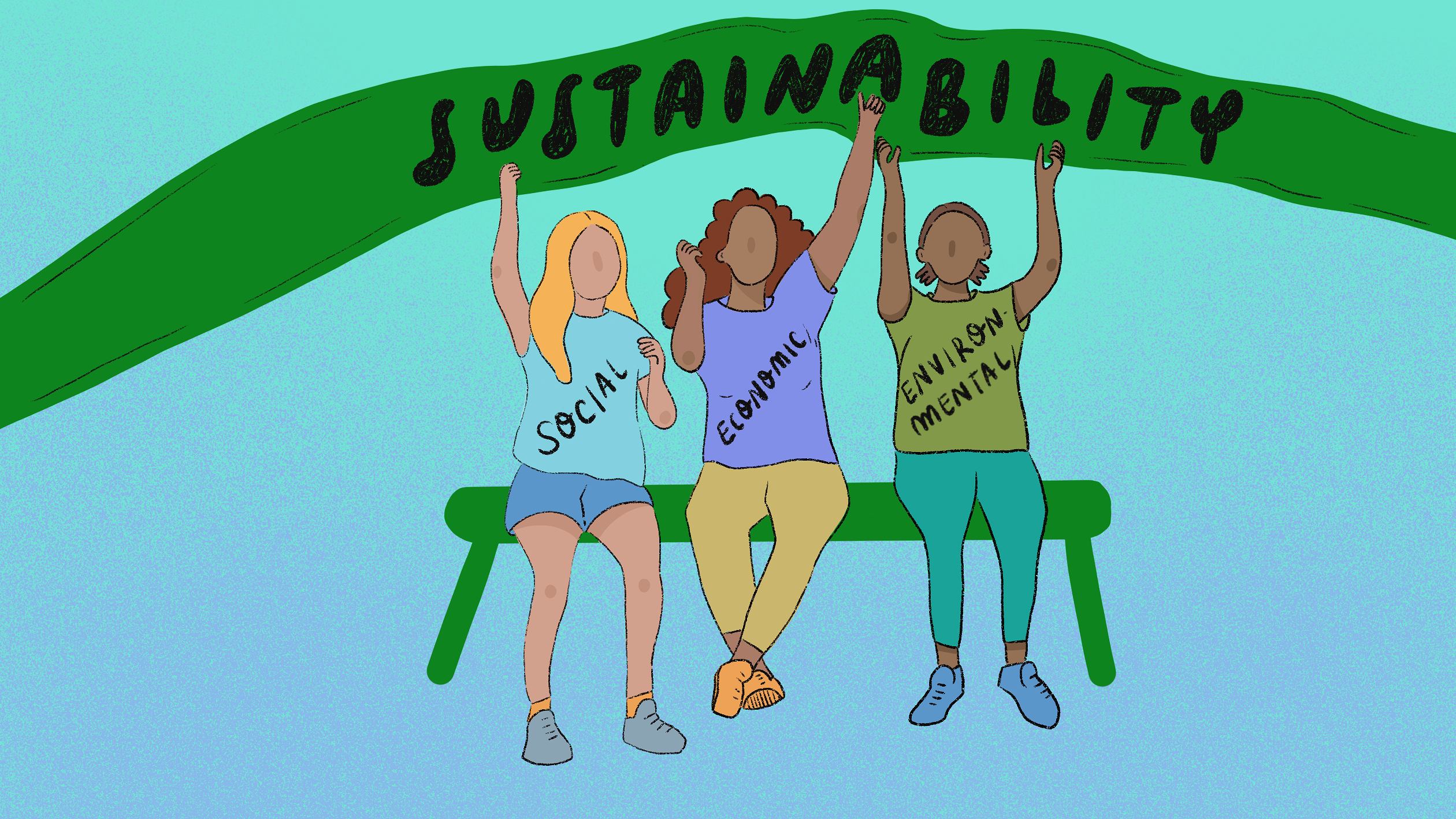
Illustration by Daniela Nunes
Let’s talk about sustainability and learning mobilities
by Giorgia Verna
Sustain-Mobility, a conference organised within the framework of the European Platform on Learning Mobility (EPLM), took place from 26 February to 1 March 2023 at Schloss Hohenkammer, in the north of Munich, Germany. More than 100 experts, young people, researchers and policy makers from all over Europe gathered to talk about the link between sustainability and learning mobility.
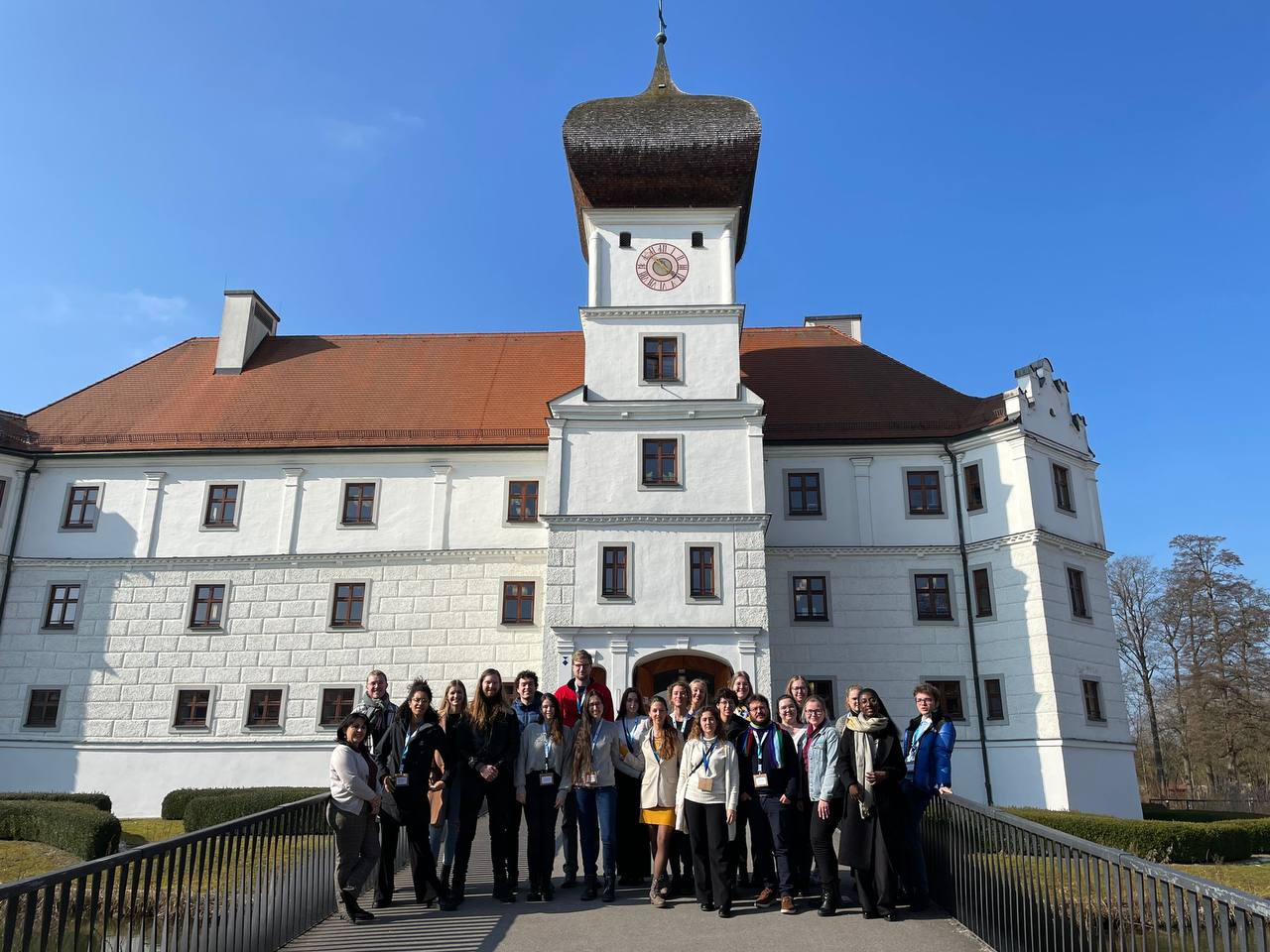
What does sustainability mean?
“Sustainability is not just a concept that is connected to the words ‘environment’ and ‘biological’. For ages we have believed that this was the only meaning of this term, but it is so much more,” said Ondrej Barta, while explaining the concept of sustainability.
It is possible to look at sustainability from three different perspectives: environmental, social and economic points of view. The model presented to the EPLM conference is the so-called Triple Bottom Line model, which was developed specifically to look at sustainability as an equilibrium between these three perspectives. This makes clear that sustainability has to be considered as an intersectional issue, meaning that it can be analysed in relation to climate change, inclusion, human rights, minority rights, locality, and many other issues.
Environmental sustainability is the first link that someone makes in their mind when thinking about this field. Sustainability is often connected to the idea of making green, bio and eco choices. It means acting within the environmental limits and boundaries of the planet.
“Although nowadays it is widely recognised that we cannot consider sustainability only from this perspective,” continues Ondrej Barta.
A second perspective is social sustainability, which relates to human rights and relationships between people and communities to ensure everyone’s well-being. According to this idea, sustainability is therefore intrinsically linked to issues such as social justice, equity, fairness, opportunities, accessibility, solidarity, human rights and inclusion.
Finally, the concept of sustainability can also be analysed from an economic point of view. It connects to the prospering economic opportunities and the use of resources such as time, money, energy and human capacity in a responsible way, to limit the harmful impact of economic development.
What does learning mobility mean?
Learning mobility in the youth field is the mobility of young people undertaken freely for a specific period of time, to impact on the local community or to acquire new competences (knowledge, skills, attitudes or values). Basically, according to the EPLM definition, all the events of mobility within Europe are considered a learning mobility.
What does sustainable mobility mean?
Keeping in mind the definition of learning mobility, and the intersectional concept of sustainability, the EPLM conference gave space to deepen the concept of sustainable mobility, thanks to the help of Dražen Šimleša, researcher from the European Network for Solidarity Economy, Peter Akkerman, policy maker and founder of the NGO “The forest that owns itself”, and Philsan Osman, another participant in the conference. In my personal experience as a young journalist and an Italian student, I never had the possibility to face a topic like this. It was something new, something that really forced me to look at the problem and how I lived my life. I started wondering: what are even small things that I can do in my everyday life to be more sustainable?
“By starting not to take an airplane every day. We can use other types of transport and we can go by bike from place to place. It is important to be honest and realistic about the impact not only that we have on the planet, but also on each other,” said Peter Akkerman.
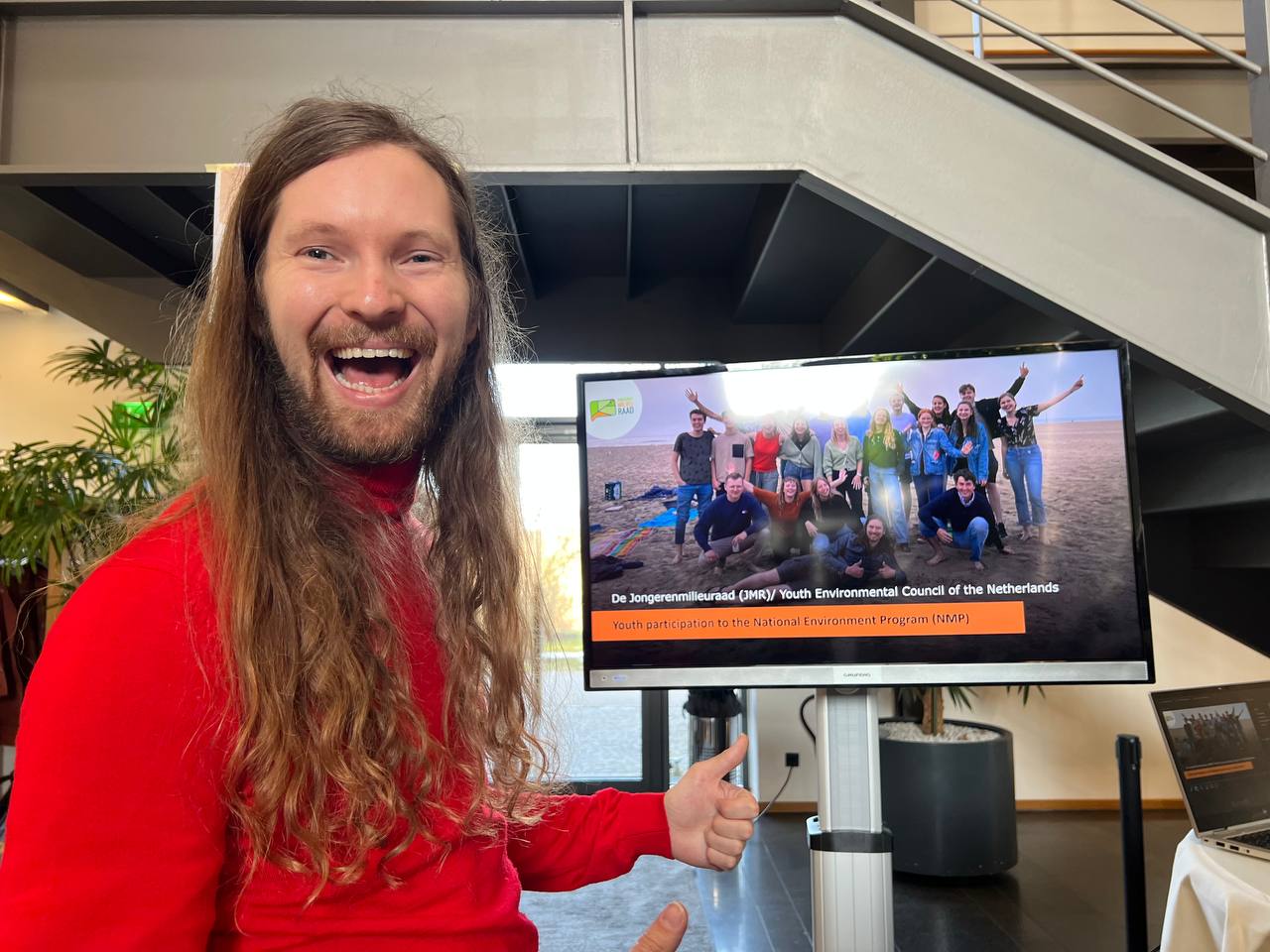
When I met Peter I immediately understood that he was a man of action. He is sure that there is not much time for talking and he stresses the importance of starting to do so. With his NGO “The forest that owns itself” he works with a lot of young people and talks with them to understand how they want to be included in the process and what changes they would make for being more sustainable. “Sometimes we talk till 1 a.m. It is important to learn from the youngest.” I found it fascinating the way he created a community of young people, working together longing for a better world.
“I hope that after these beautiful days altogether and all the information that we shared here, we will start acting, because we are in a time of urgency and we need to act now.”
Dražen Šimleša tried to stress the intersectional aspects of sustainability:
“One of the biggest mistakes that we can make is thinking just about eco sustainability without considering society and economy. If we want to change the situation we need to go to the core of the problem; we have to work more and change the situation in society and economy. Think about the places in our world where there is no co-operation, no trust, no mutual help, no democracy and the economy is acting in a more brutal way. Can you imagine a green environment in that situation? I think not.”
This was another thing I had never thought about. Talking about sustainability for me has always been about just the eco aspect. During the conference I had the opportunity to talk with people who have different lifestyles, problems, ways of perceiving things and this really made me realise that sustainability is also about reducing the gap of inequalities between people and making everyone feel included and considered.
What is GreenComp?
GreenComp identifies a set of sustainability competences that feed into education and training programmes to help learners develop knowledge, skills and attitudes conducive to sustainability.
Those competences, which were presented to the audience by Ulrike Pisiotis from the European Commission, were developed in the context of the European Green Deal. This pact shares the goal of the adhering countries to become climate-neutral by 2050, and to the idea of protecting human life, animals and plants by cutting out pollution, among other measures.
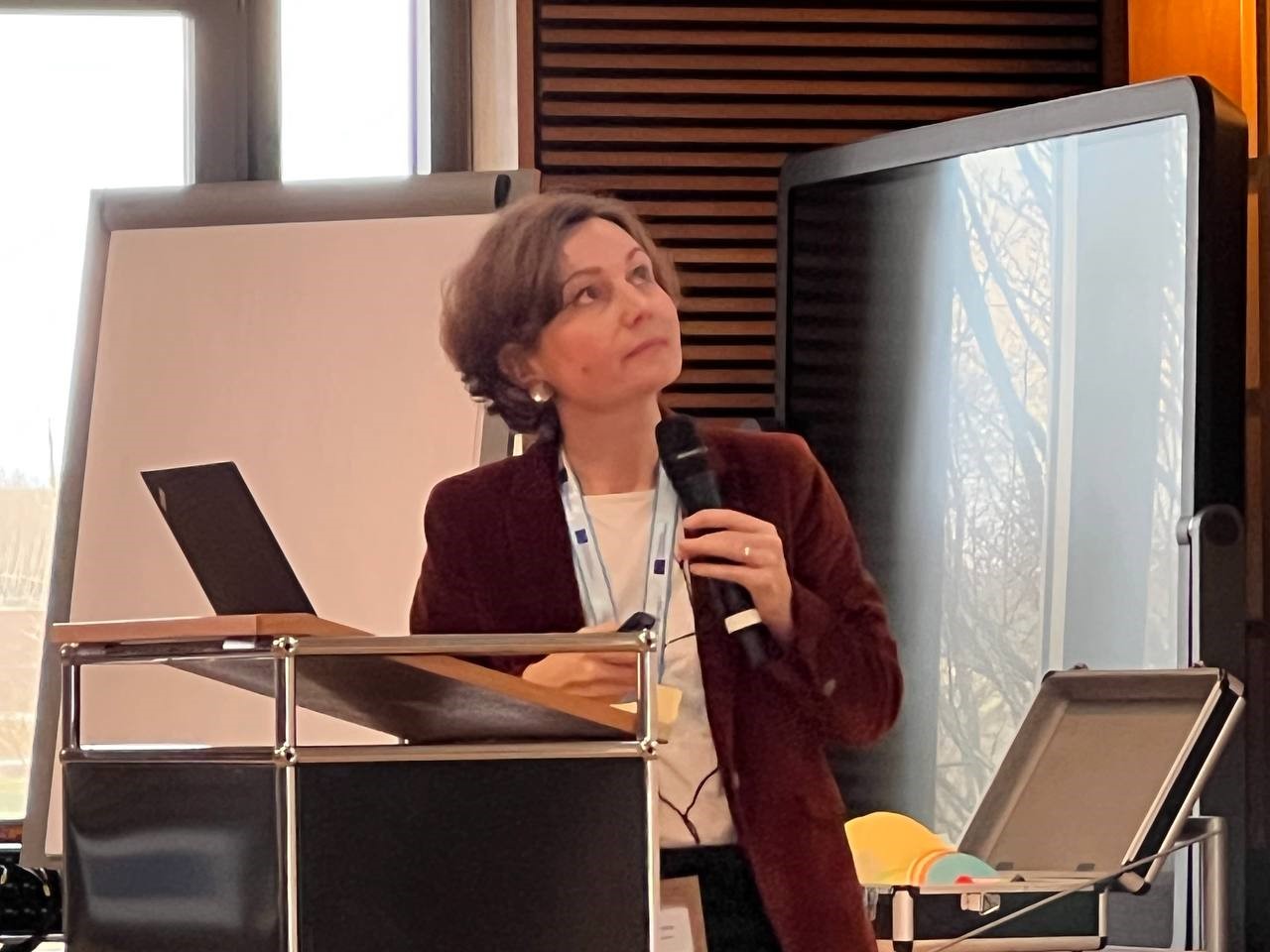
Ulrike Pisiotis pointed out in her slides the importance of spreading and introducing GreenComp, and commenting on the stakeholders’ expectations in this field: according to the Eurobarometer from March 2020 “94% of citizens in all EU member states say that protecting the environment is important to them”. Six out of 10 young people globally are “very” or “extremely” worried about climate change and they believe that education and training are not preparing them properly to meet this challenge. Three in four respondents to the Commission’s public survey ranked education and training as the most important sector to help understand and take action on climate change issues.
What can be done in this field?
The second day of the EPLM conference was focused on looking at sustainability and learning mobility as intertwined, and tried to provide concrete examples of what can be done from the dialogue and the interactions between the speakers and the participants.
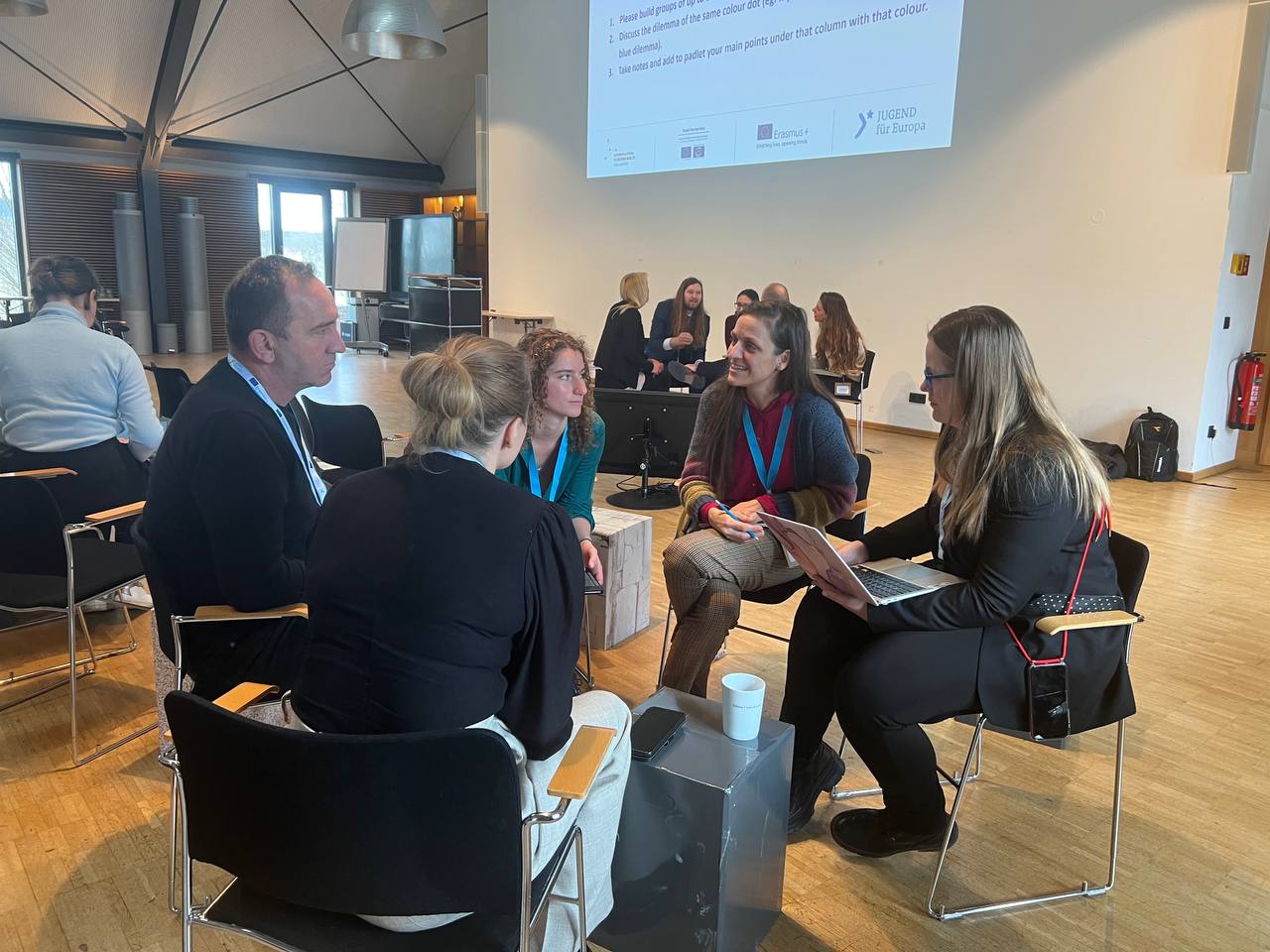
Some interesting suggestions were underlined during the discussion between Almut Röder, from the EuroPeers network, Sébastien Thierry from the Agence Erasmus+ France, Tomi Kiilakoski from the Finnish Youth Research Network and Lucie Schubert from the Association of Non-formal Education.
An important point that was stressed during the panel was the need to rethink the educational field and how it is coping with this crisis.
Almut Röder brought to the discussion her point of view as a young expert:
“Our generation is the one bearing all the consequences of climate change and so we want to live in a more sustainable way. We feel powerless in front of the polluters of the world and the policies that we have. Of course we have taken some steps forward, but we want to reach out to other young people to get on board, but it is difficult to take unsustainable aspects and make them sustainable.”
The problem with young people is that on the one hand they are very passionate about the topic and dedicated to making a change. On the other hand, there is also a proportion of them who are not interested and seem passive to this situation.
“It is impossible to make a change alone,” stresses Lucie Schubert:
“When you want to obtain something fast, you need to slow down. We will not be sustainable if we don’t think about things first. If we try to run now, I don’t think that we will be able to make good decisions. We need to relax and don’t be so strict with ourselves. It is with the choices that we make every day that we can make a change.”
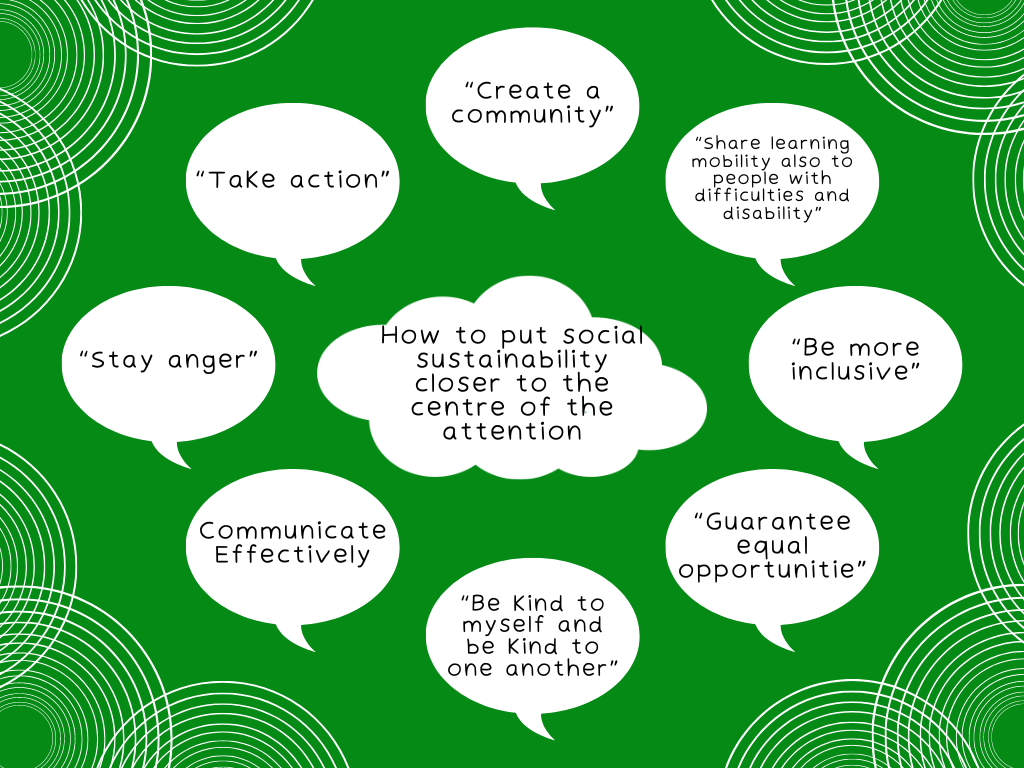
We are just at the beginning of the sustainability path, but maybe it could be too late. We need to take action, and events like the EPLM conference are an example of good practice to shape minds, to shake consciences and to give a more general understanding of the problem.

Giorgia is an italian journalist passionate about art, culture and social media.


